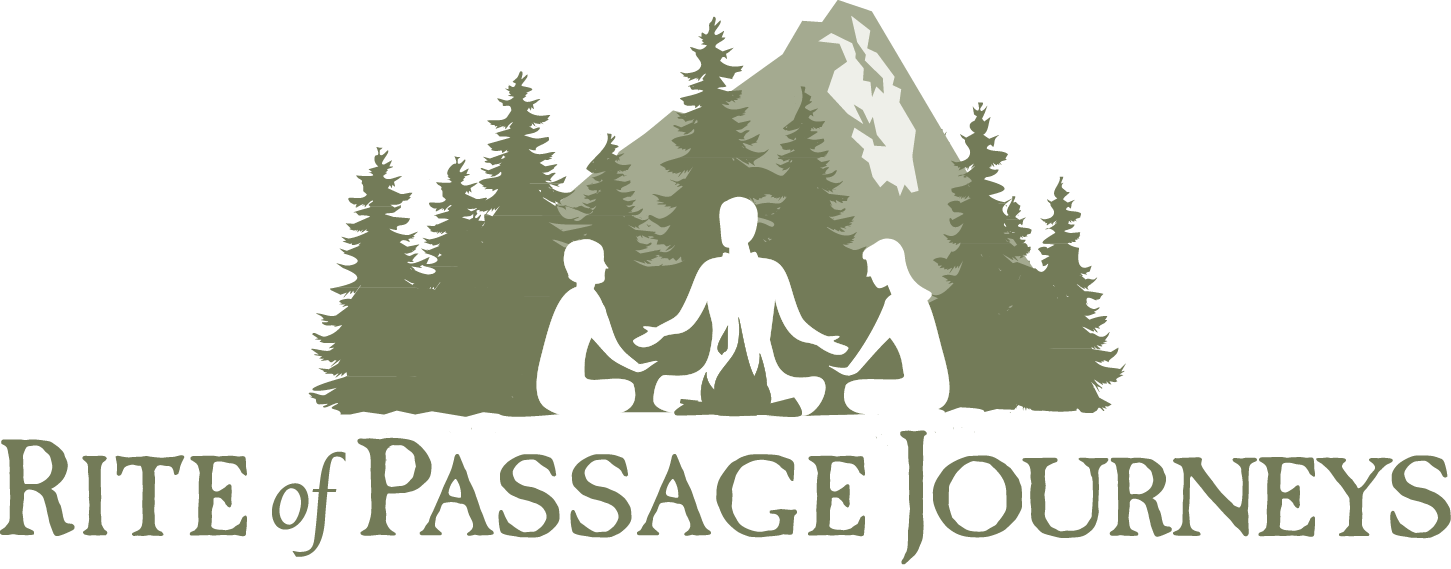When is it the right time for your child to have a coming of age initiation? We often get calls and emails from parents asking us if their child is too young or too old for a Coming of Age to be meaningful. We don’t claim to always have the answer to these questions but there are several things that we suggest you look for when considering this momentous rite of passage for your child…
Bill Plotkin, in his book “Nature and the Human Soul,” describes a “center of gravity” shift as a person moves from childhood into adolescence. In childhood, the center of gravity is the family, parents and home. In adolescence, the center of gravity is the social life, with the attention most focused on peers, society and sexuality. The move from childhood to adolescence is a long, gradual shift --- like the swing of a pendulum --- as this center of focus moves off of the family and onto the peers. So, ideally you would like to catch your child when this pendulum swing is in full gear --- as his or her interest is beginning to be absorbed by peers and friends, pop culture and perhaps a new curiosity about romance and sexuality. A classic marker for this moment is when your child will no longer allow you to drop him off at school, but would prefer to walk the last few blocks rather than endure the mortification of his schoolmates seeing that he actually has parents!
Often this shift of gravity is accompanied by the physical and emotional changes of puberty --- body changes and increasing emotional intensity --- but not always. Boys in particular may hit physical puberty a bit earlier than they experience the shift into psychological and spiritual adolescence. Girls often hit this shift earlier than boys, and we find that girls are ready for our trips at 12 or 13, with 14 often being too late. By that age, many girls have claimed their independence to such an extent that parents are not able to convince them to go on a trip, or indeed to do anything that begins as the parent's idea! Boys are sometimes ready at 12, and usually ready at 13 or 14, for our Coming of Age trip. A 15-year old may be perfectly ready or may consider him or herself too old to honor the shift out of childhood. However, even a 15- or 16-year old who has not had a Coming of Age experience facilitated for him or her will still have a deep inner need for this rite of passage and will be greatly benefited by having it, even if a tad late.
The prime task of a person entering adolescence, in our culture, is to establish his or her independence from parents or guardians. Quite understandably, this is not always done gracefully. Teenage girls will often push hard against parents, particularly mothers, and may begin to argue about everything. They may also explode with emotion (anger, tears) telling you all about everything that is wrong. Teenage boys, however, tend to withdraw and may suddenly feel awkward about touching or hugging parents or refuse to tell you much at all about their lives. The beginnings of these sorts of power struggles, blow-ups or withdrawals are also excellent markers to watch for.
Many parents understand that a Coming of Age experience is something that families and communities must provide for their young people --- it will almost never occur to a child that she or he needs one. However, some parents struggle with getting “buy-in” from their children. If you are not able to simply say: “This is an experience you need to have, and it is my responsibility to provide it for you. Here you go,” then how can you convince your child to get on board?
Often one of the exciting “hooks” of a Coming of Age experience for a young person is the allure of new privileges. On our trips we talk a lot about new freedoms and new responsibilities, and how one really can’t have freedom without stepping up to the accompanying responsibility. At the end of our programs, parents and youth sit down together to negotiate a new family agreement, including new freedoms the youth is ready for. It is certainly reasonable for a parent to say, “You are growing up and becoming a teenager. I need to know that you understand what this means and that you are conscious about this step. This Coming of Age trip will help you do that. When you return from this adventure, I will know that you are ready for new freedoms, like [travelling around town on the bus on your own, new cell phone, having friends over when I’m not here, etc].”
Some young people are facing a lot of questions at this time of life --- wondering about sexuality and gender identity, what it means to become a young man or woman, how to navigate peer dynamics at school or how to deal with issues with friends, teachers and parents. These children might be relieved to hear: “Most people your age struggle with questions about life. This Coming of Age trip offers you a chance to explore some of these issues with a mentor who can help you sort thing out. You will be with a group of peers who are also struggling with these issues and you can all explore life’s big questions together and learn from each other.”
Some young people feel apprehension about the upcoming change in their lives and may be concerned that they will grow apart from you as they become teens. Such kids may be helped by hearing, “Things are going to change a lot for you and for us as a family as you become a teenager. This is all healthy and necessary. But I would like for us to continue to be close through these changes. One of the best ways for us to do this is for you to go on this Coming of Age trip. It will help you step into this new phase of life and it will help us, as a family, step into this new phase together.”
And of course, some children will just need to understand that this trip will be FUN! It will be a great adventure and an opportunity for them to challenge themselves in a really positive way. They will do things that most people have never done --- like completing a 24-hour solo on the beach? Embarking on an 8-day backpacking trip though a beautiful valley (with wild animal sightings!)? Climbing rope ladders up sand cliffs and plunging into ice-cold mountain streams? They will definitely come back with stories to tell!!
- Amanda Ayling, Journeys Program Director, 2010 - 2015












